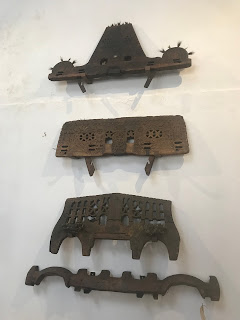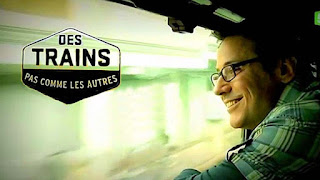Mais dois muito bons momentos de televisão, desta vez através da FFMS e no canal 3 da RTP
How to succeed in exams
As GCSEs and A-levels begin, tips from a former examiner

Exams start on Monday. Thousands of A-level and GCSE pupils will be swotting hard for them right now. Some will do well; others won’t. Knowledge and ability are the two obvious keys to success. But there’s another factor that’s often overlooked: exam technique. Having taught thousands of students of all abilities at several leading schools, I know this is a vital reason why some teenagers are more successful than others: they use the right exam techniques under pressure. So what are these techniques?
First and foremost, arrive early. Exams need a clear head and turning up at the last minute is certain to be stressful. Once in the exam hall (which will hopefully be a reassuringly familiar school building, like a sports hall), students should follow the clear instructions on the exam paper. The ‘rubric’ is there for a reason: to help candidates plan their time carefully and give basic guidance on the questions. As an example, it’s no good spending 30 minutes on a question worth 20 per cent of the marks, then 15 minutes on a question worth 50 per cent. Yet it’s amazing how many teenagers fail to plan their time carefully enough. Each year, after a crucial exam, some of the students I’ve taught tell me: ‘Oh sir – I was doing so well, then I ran out of time!’ They shouldn’t have.
Equally, in most exams there’s a choice of question. Here, a minute or two spent pondering which question to answer before putting pen to paper is time well spent. One question may look hard at first, then become clearer at second glance. In the pressure of the exam hall, it’s all too easy to opt automatically for the first question – statistics tell us many students do this, even when the second question is actually easier.
In the pressure of the exam hall, it’s all too easy to opt automatically for the first question – statistics tell us many students do this, even when the second question is actually easier
For example, one perennially popular exam text GCSE students will be writing on over the next few weeks is John Steinbeck’s Of Mice and Men. There’s always a choice of questions here, but some are trickier than others. ‘Discuss the significance of animals in the novel’ is a lot easier than ‘Explore Slim’s relationship with George and Lennie’. For a start, the book is called Of Mice and Men, so animals are bound to be important; whereas Slim is one of the most complex characters in an otherwise straightforward text. Yet both questions are worth the same marks. So make the right choices.
Similarly, there’s an ‘unseen’ poem or passage in every English exam. These ‘unseens’ can cause panic. How do you prepare for them? But the instructions in bold type or italics at the top of the page are there to give some idea what the poem or passage is about: a signpost, directing the candidate into the question. It’s amazing how many candidates don’t even bother reading such helpful material – a recipe for disaster. Again, each summer I’m told, post-exam, by pupils: ‘Oh sir, I never even saw that!’
Next, cut out the ‘own goals’, or avoidable mistakes. No examiner expects a script to be error-free, but careless mistakes are irritating – especially when the same howlers keep cropping up, costing valuable marks. A classic here is using commas instead of full stops at the end of sentences. In GCSE English, assessed for spelling, punctuation and grammar, this kind of basic mistake and others like it (‘it’s/its’, ‘could of’ etc) could cost half a grade. Five minutes should be spent checking for avoidable mistakes at the end of every exam. There are bound to be some.
And students must make sure they answer the question set – not the one they hoped would come up and have done countless practice papers on. No matter how good the answer, if it’s off-topic, it won’t score top grades. There’s no time for detailed essay plans either. A few basic bullet points should suffice as an outline – making sure the main points are covered and the thread isn’t lost halfway through the answer.
Finally, it helps to remember that the person marking the exam script is a human being. Anything that makes his or her life easier in terms of clear, neat presentation will help get the examiner on-side. Who knows, there may be a 50/50 decision on whether to award an A or B grade. Clarity and legibility could give a candidate the benefit of the doubt here. An examiner with a headache, caused by frowning over a hastily scrawled script, is unlikely to be in a favourable mood.
And last but not least, once the exam is over, forget about it and move on to the next one. It’s no good fretting over a bad paper. Keep a cool head in the exam hall, follow these simple basic techniques and exam disasters can be avoided.

















































